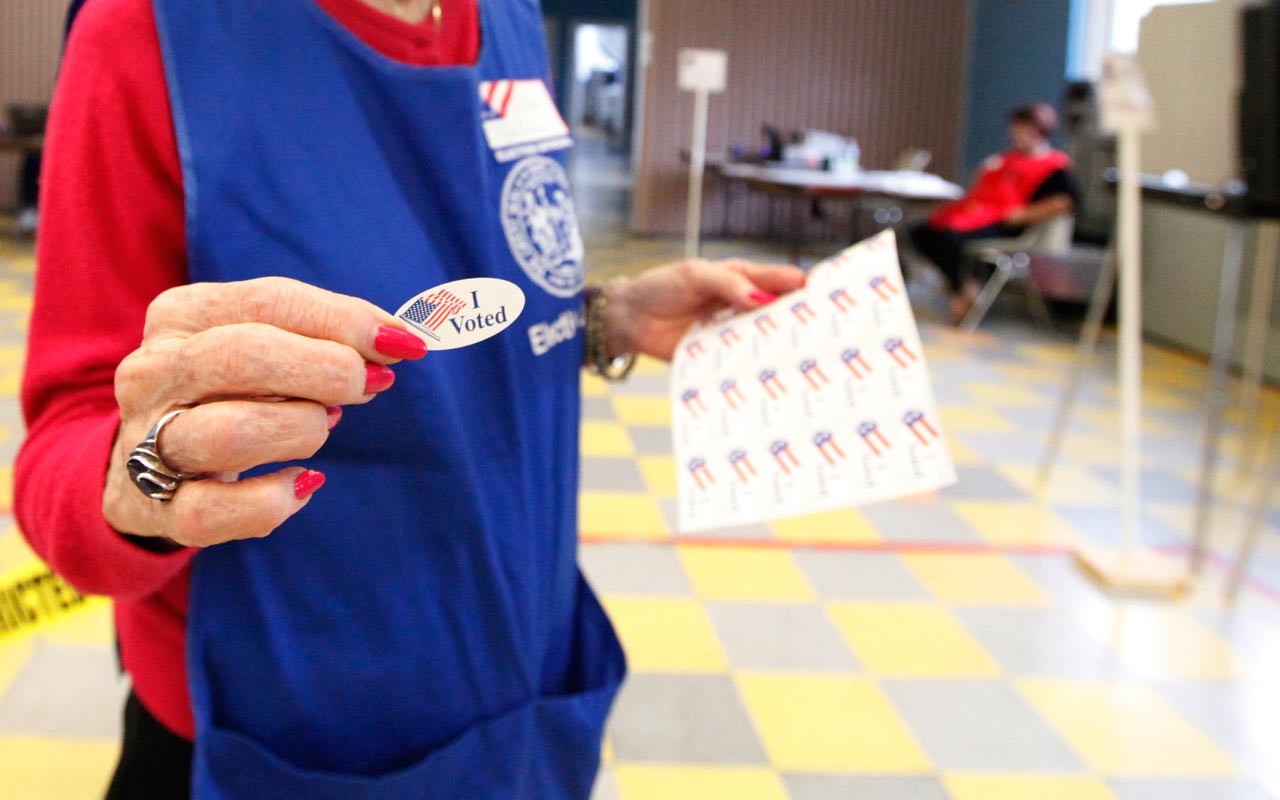Will the New Fiduciary Rule Really Protect Your Investments?
Nobody has a bigger stake in your money than you do.


Profit and prosper with the best of Kiplinger's advice on investing, taxes, retirement, personal finance and much more. Delivered daily. Enter your email in the box and click Sign Me Up.
You are now subscribed
Your newsletter sign-up was successful
Want to add more newsletters?

Delivered daily
Kiplinger Today
Profit and prosper with the best of Kiplinger's advice on investing, taxes, retirement, personal finance and much more delivered daily. Smart money moves start here.

Sent five days a week
Kiplinger A Step Ahead
Get practical help to make better financial decisions in your everyday life, from spending to savings on top deals.

Delivered daily
Kiplinger Closing Bell
Get today's biggest financial and investing headlines delivered to your inbox every day the U.S. stock market is open.

Sent twice a week
Kiplinger Adviser Intel
Financial pros across the country share best practices and fresh tactics to preserve and grow your wealth.

Delivered weekly
Kiplinger Tax Tips
Trim your federal and state tax bills with practical tax-planning and tax-cutting strategies.

Sent twice a week
Kiplinger Retirement Tips
Your twice-a-week guide to planning and enjoying a financially secure and richly rewarding retirement

Sent bimonthly.
Kiplinger Adviser Angle
Insights for advisers, wealth managers and other financial professionals.

Sent twice a week
Kiplinger Investing Weekly
Your twice-a-week roundup of promising stocks, funds, companies and industries you should consider, ones you should avoid, and why.

Sent weekly for six weeks
Kiplinger Invest for Retirement
Your step-by-step six-part series on how to invest for retirement, from devising a successful strategy to exactly which investments to choose.
The Department of Labor’s new fiduciary rule runs to 1,000 pages and more, and the file I’m keeping on it seems almost as hefty. At first glance, the rule seems straightforward enough: Brokers and other financial professionals who offer investors advice on retirement accounts—401(k)s, IRAs and rollover IRAs—are being required to act as fiduciaries, putting clients’ best interests ahead of their own financial gain, a stricter requirement than the current suitability standard for brokers.
But in the real world, the devil is in the details, and this rule seems particularly devilish. As Elizabeth Leary writes in her story on this topic, “financial firms are still trying to determine their responsibilities in light of the new rule.” The Investment Company Institute, the mutual fund industry’s trade group, denies the Labor Department’s assertion that assets invested with brokers underperform their benchmarks. And the ICI says that IRA investors pay about half the average annual expenses charged overall for stock mutual funds: 0.71% of assets versus 1.33%. The ICI has asked Congress to reject the rule and pass a bipartisan bill to adopt a “best interest” legal standard instead.
Although the rule doesn’t take effect until April 2017, our story can help you prepare by explaining how you might be affected and what you can do on your own to protect your retirement investments, rule or no rule. For example, Elizabeth points out that although the rule is far-reaching, it is particularly aimed at high-fee investments in rollover IRAs, such as variable annuities and nontraded real estate investment trusts. Fees aside, those investments are often risky and illiquid, and you should always approach them with caution, whether they’re inside or outside retirement accounts (see our story on variable annuities, Income Guarantees, With a Catch).
From just $107.88 $24.99 for Kiplinger Personal Finance
Become a smarter, better informed investor. Subscribe from just $107.88 $24.99, plus get up to 4 Special Issues

Sign up for Kiplinger’s Free Newsletters
Profit and prosper with the best of expert advice on investing, taxes, retirement, personal finance and more - straight to your e-mail.
Profit and prosper with the best of expert advice - straight to your e-mail.
What you should know. Assuming the rule stands, it could change the way your money is managed. Stockbrokers and money managers would have an incentive to switch from charging commissions to using asset-management accounts that levy a flat fee—say, 1% a year. That might save frequent traders money on commissions but increase costs for buy-and-hold investors. Brokers would be able to continue charging commissions, but you’d have to sign a separate contract that imposes more regulatory requirements. So you need to know which type of financial arrangement with your adviser suits you best: an annual fee, commissions or perhaps an hourly fee for a particular service, such as retirement planning.
Because of the rule’s complexity, there’s speculation that some brokers and advisers could drop small accounts or shy away from accepting 401(k) rollovers, meaning that more money would stay with employer plans, assuming employers permit it. Keeping money in your employer’s plan can give you the advantage of lower costs on larger institutional accounts, but the investment options may be poor or more limited than you’d like (see How to Withdraw From Your 401(k) Plan in Retirement).
No guarantees. And be aware of what a fiduciary standard doesn’t do: It doesn’t guarantee that the advice you get will be any better or that you won’t lose money. In the end, nobody has a bigger stake in your money than you do. That means you should understand and feel comfortable with what you’re investing in, know how much you’re being charged and match your investments with your appetite for risk. As always, we’re here to help you—and we’ll do it in less than 1,000 pages.
Profit and prosper with the best of Kiplinger's advice on investing, taxes, retirement, personal finance and much more. Delivered daily. Enter your email in the box and click Sign Me Up.

Janet Bodnar is editor-at-large of Kiplinger's Personal Finance, a position she assumed after retiring as editor of the magazine after eight years at the helm. She is a nationally recognized expert on the subjects of women and money, children's and family finances, and financial literacy. She is the author of two books, Money Smart Women and Raising Money Smart Kids. As editor-at-large, she writes two popular columns for Kiplinger, "Money Smart Women" and "Living in Retirement." Bodnar is a graduate of St. Bonaventure University and is a member of its Board of Trustees. She received her master's degree from Columbia University, where she was also a Knight-Bagehot Fellow in Business and Economics Journalism.
-
 Over 65? Here's What the New $6K Senior Bonus Deduction Means for Medicare IRMAA
Over 65? Here's What the New $6K Senior Bonus Deduction Means for Medicare IRMAATax Breaks A new deduction for people over age 65 has some thinking about Medicare premiums and MAGI strategy.
-
 U.S. Congress to End Emergency Tax Bill Over $6,000 Senior Deduction and Tip, Overtime Tax Breaks in D.C.
U.S. Congress to End Emergency Tax Bill Over $6,000 Senior Deduction and Tip, Overtime Tax Breaks in D.C.Tax Law Here's how taxpayers can amend their already-filed income tax returns amid a potentially looming legal battle on Capitol Hill.
-
 5 Investing Rules You Can Steal From Millennials
5 Investing Rules You Can Steal From MillennialsMillennials are reshaping the investing landscape. See how the tech-savvy generation is approaching capital markets – and the strategies you can take from them.
-
 Stick With Your Plan
Stick With Your PlanFeature Timing the market is nearly impossible. The worst thing you can do is sell stocks when prices are tumbling.
-
 ESG Investing Takes Off
ESG Investing Takes OffFeature For our ESG 20, we identified 15 stocks and five funds that excel at meeting environmental, social and corporate governance challenges.
-
 Certainty Is a Blessing
Certainty Is a BlessingFeature The uncertainty leading up to the election was disquieting for an anxious nation, and it put our staff in limbo, too.
-
 A Bumpy Ride Ahead
A Bumpy Ride AheadFeature Even if you think stocks are headed higher, there's no better time for a portfolio tune-up.
-
 Why I’m Optimistic
Why I’m OptimisticFeature If we look ahead and see straight—and focus on what’s good for all of us—we will emerge from the darkest hours even stronger.
-
 A Brush With Warren Buffett
A Brush With Warren BuffettFeature COVID-19 has turned off the party at Berkshire Hathaway’s “Woodstock for Capitalists,” but as ever, he has wise words for troubled times.
-
 100 Years of Advice
100 Years of AdviceFeature Happy birthday to us! We’ve got plenty of trustworthy, valuable advice for the future, too.
-
 The Broker Matrix
The Broker MatrixFeature The best broker for you depends on what’s important to you.